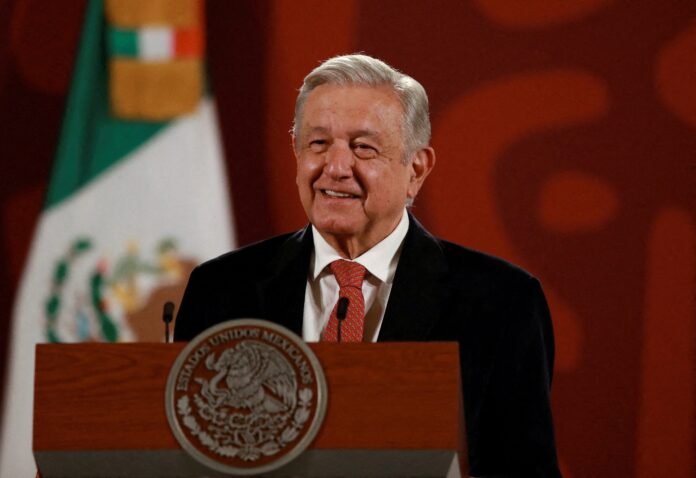The President’s Role in Mexico’s Political Landscape
Mexico’s presidency is a critical and influential position, shaping not only the nation’s political framework but also its social and economic fabric. The president holds significant power, leading the executive branch, setting the agenda for reform, and representing Mexico on the international stage. With the spotlight on this key figure, understanding their background, policies, and the impact of their leadership offers valuable insights into the direction of the country.
This post unpacks the profile of Mexico’s current president, explores their key reforms, evaluates public sentiment, and considers their legacy in shaping Mexico’s future.
Who is Mexico’s Current President?
Early Life and Political Rise
Born in 1953 in the state of Tabasco, Andrés Manuel López Obrador—widely referred to as AMLO—is a prominent figure in Mexican politics. His early experiences in a rural family and his university studies in political science at the National Autonomous University of Mexico (UNAM) significantly shaped his approach to governance.
AMLO’s political career began in the 1970s as a member of the Institutional Revolutionary Party (PRI), later joining the Party of the Democratic Revolution (PRD) to advocate for progressive and socialist policies. Over the past four decades, he has built a reputation as a man of the people, emphasizing social justice and poverty reduction.
Presidential Platform
Elected as president in 2018 under the MORENA party banner, AMLO promised to tackle corruption, reduce inequality, champion transparency, and bring about significant economic reforms. His platform resonated with millions of Mexicans, offering hope for a nation grappling with long-standing corruption, rising violence, and social disparities.
During his presidency, AMLO’s focus has been firmly on addressing these systemic issues—though not without generating extensive public debate.
Key Policies and Reforms
AMLO’s presidency has been marked by some of the most ambitious reforms in decades. Here’s a closer look at his major policies and their implications.
Anti-Corruption Agenda
Fighting corruption has been a central focus of AMLO’s administration. Creating the “National Institute to Combat Corruption,” his government aimed to bring greater transparency and accountability to public offices. Reports show mixed results, with measurable advances in catching offenders but persistent challenges in eradicating deeply ingrained corruption.
Social Programs
To combat inequality, AMLO introduced social programs targeting Mexico’s poorer classes. These include scholarships for students, pensions for the elderly, and direct subsidies for farmers. While lauded by many for addressing the needs of marginalized groups, critics argue that such programs lack long-term sustainability and overburden public finances.
Economic Strategy
On the economic front, AMLO emphasized an austerity policy, cutting government overhead costs to redirect resources to his social programs. He also prioritized developing infrastructure projects, such as the Mayan Train and the Dos Bocas refinery, aimed at stimulating economic growth. However, observers have raised concerns over the environmental impact of some of these initiatives.
Security Policies
Mexico has long grappled with violent crime and powerful drug cartels. AMLO’s “hugs, not bullets” approach focused on addressing the root causes of violence, such as poverty and inequality, rather than solely relying on militarized responses. Critics have noted that while this strategy emphasizes prevention, crime rates remain alarmingly high in certain regions.
Mexico and the World Under AMLO
International Relations
AMLO’s leadership has marked a shift in Mexico’s foreign policy. Prioritizing national sovereignty, his administration adopted a noninterventionist stance, steering clear of many regional conflicts.
At the same time, Mexico has sought to strengthen economic ties with the United States, benefiting from the United States-Mexico-Canada Agreement (USMCA). However, tensions have flared over issues like immigration policies, with Mexico caught between U.S. demands and domestic challenges.
Environmental Diplomacy
Despite controversies surrounding his domestic infrastructure policies, AMLO has been an advocate for reforestation and renewable energy projects. Mexico’s participation in global climate agreements underscores its commitment to tackling environmental challenges.
Public Sentiment and Controversies
AMLO’s presidency has been polarizing to say the least. Many Mexicans appreciate his focus on social well-being and his efforts to hold elites accountable. However, others criticize his centralized power, austerity measures, and what some call populist rhetoric.
Controversial Moments
The cancellation of Mexico City’s partially constructed airport was one of the administration’s most contentious decisions, resulting in economic losses and backlash from investors. His handling of COVID-19 and his dismissive attitude toward mask mandates also invited significant criticism.
Public Approval
Recent polls suggest AMLO’s approval ratings remain relatively high, often hovering around 60–65%. This reflects a deeply divided public—one that either admires his ambitious agenda or views his policies as a step backward.
The Future and AMLO’s Legacy
Looking ahead, AMLO’s legacy will largely depend on the lasting effects of his policies. Will his infrastructure projects boost Mexico’s economic competitiveness? Can his anti-corruption efforts create enduring change in governance? And will his administration’s focus on social programs leave a tangible reduction in inequality?
The answers to these questions will define AMLO’s presidency and its impact on Mexico’s history.
What’s Next for Mexico?
Andrés Manuel López Obrador’s presidency has brought both hope and heated debate. Whether you view him as a champion for the marginalized or a politician struggling to deliver long-term solutions, his leadership has undeniably reshaped Mexico’s political and social landscape.
What do you think about Mexico’s president and his policies? Share your thoughts in the comments below—or discuss them with your network.


